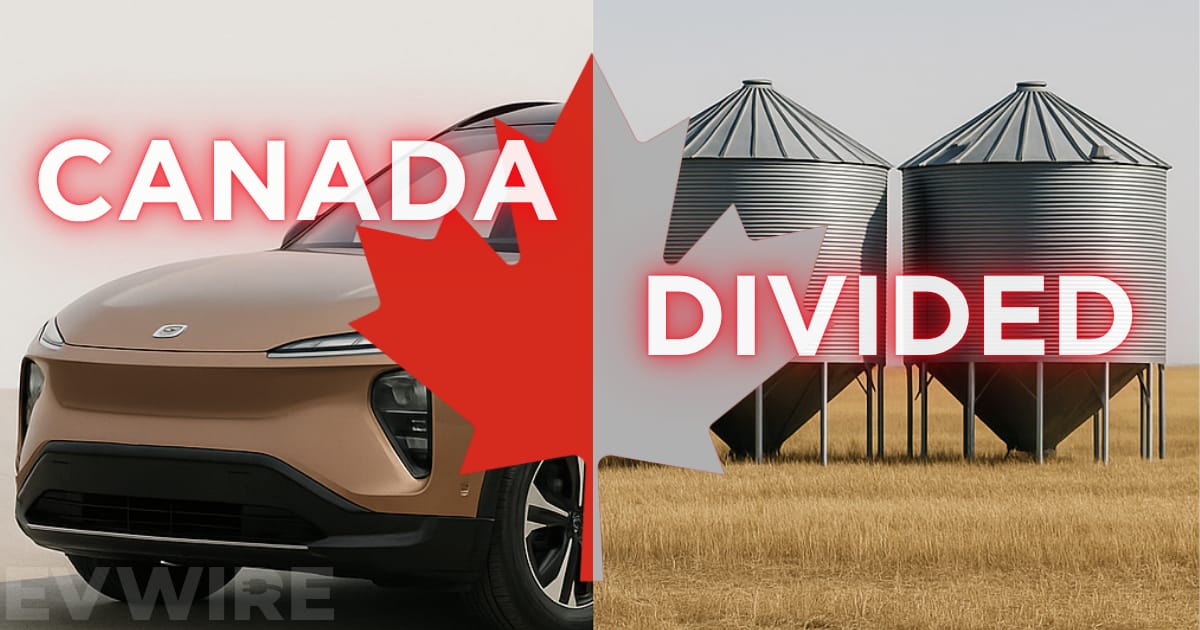EVWire brief: Manitoba Premier Wab Kinew is urging Ottawa to remove its 100 % tariff on Chinese electric vehicles, arguing that doing so would prompt Beijing to lift retaliatory duties on Canadian canola and pork.
China has reportedly offered to eliminate its tariffs if Canada acts first, but the Canadian auto industry is warning against the move, saying it would undercut domestic EV manufacturing and flood the market with state-subsidized Chinese imports.
The dispute exposes a deep divide between Prairie agriculture and Ontario’s automotive heartland, with premiers split and the federal government caught between competing economic priorities.
Kinew says farmers are being punished for a policy that has “nothing to do with agriculture.” He points to tariffs as high as 100 % on canola oil and 25 % on pork, arguing the measures are costing Manitoba producers millions in lost export revenue.
His proposal mirrors calls from Saskatchewan Premier Scott Moe, who supports tariff removal if Canada aligns with U.S. trade policy.
The Automotive Parts Manufacturers’ Association and its president Flavio Volpe says lifting tariffs would reward unfair trade practices.
Volpe argues Chinese EVs benefit from massive government subsidies, allowing them to sell at artificially low prices, threatening Canadian auto jobs and future EV investments.
“If Canada is in a trade war, the response has to be a Canadian one.”
Canada’s 100 % EV tariff, introduced earlier this year to mirror U.S. policy, was designed to protect domestic EV supply-chain growth. But the policy’s side effects on Western agriculture have turned the issue into a political and regional balancing act. Ottawa now faces a choice: Stand firm alongside Washington and shield domestic industry, or seek a negotiated truce to reopen Chinese markets for Canadian exports.
With both sectors key to Canada’s economy, finding middle ground won’t be easy.
The EV market itself is ever evolving and global trade politics continue to shape where EVs are built and sold.
Removing tariffs could help farmers but weaken manufacturing competitiveness and create job cuts across the automotive industry in Canada.
Currently, Ottawa is reviewing its trade stance, and we’ll see how this pans out - but either way, a Canadian industry will be impacted.





